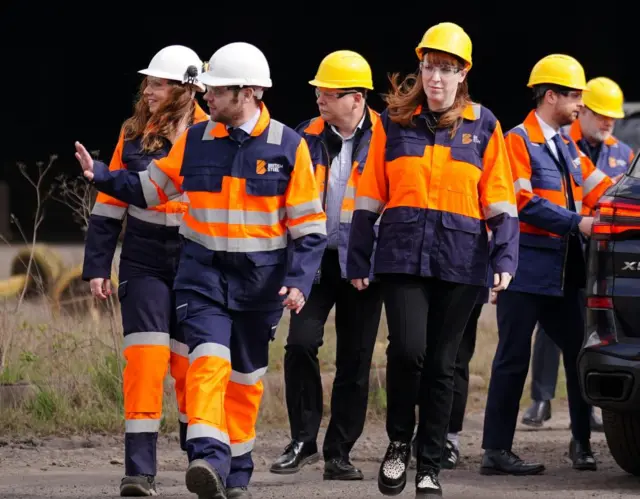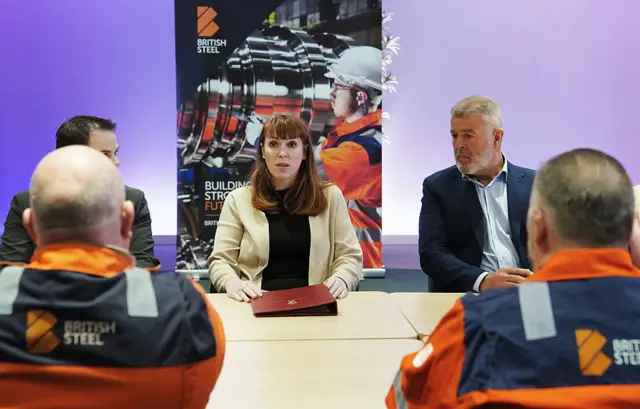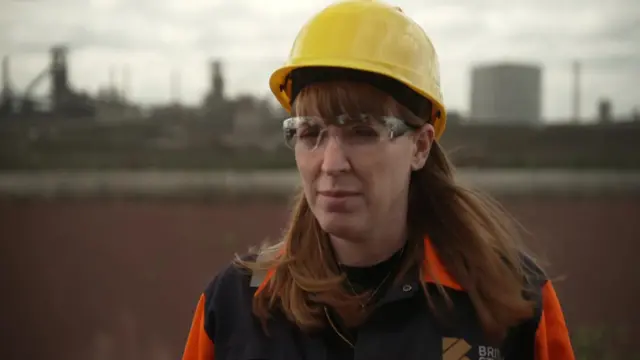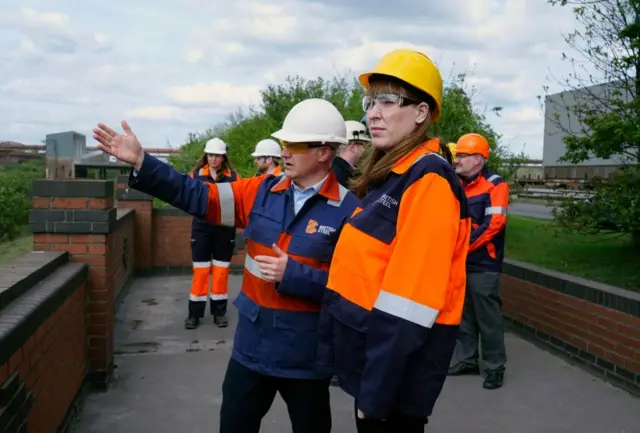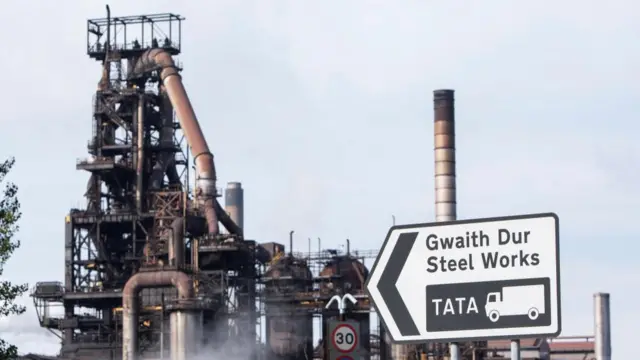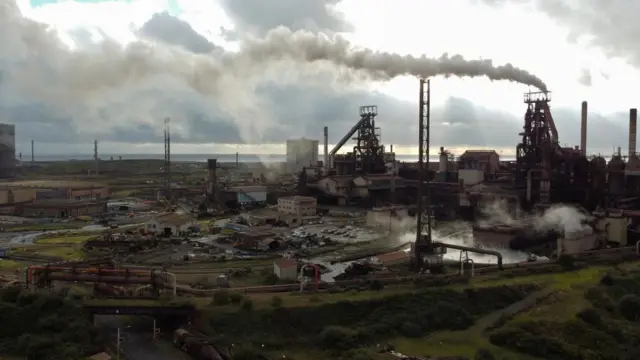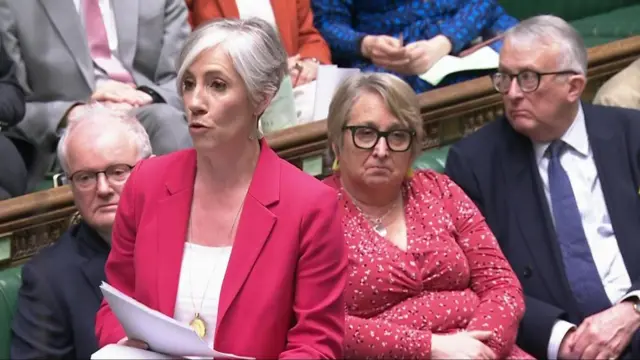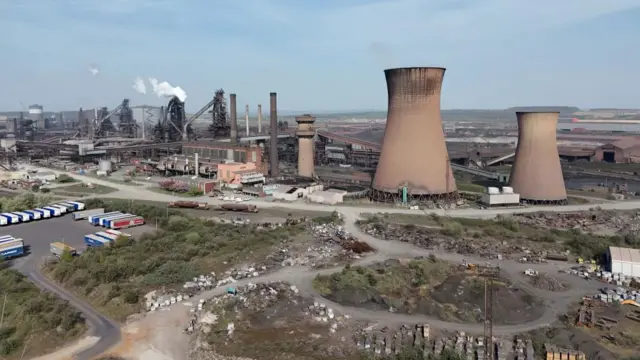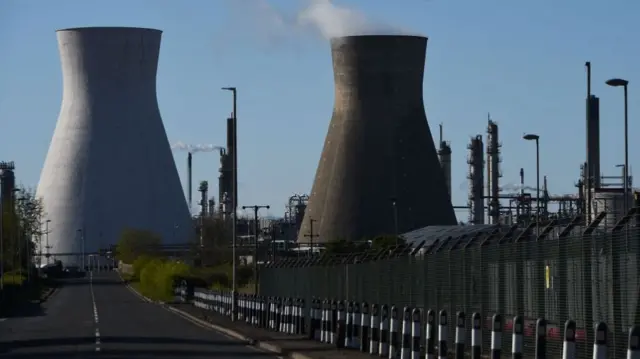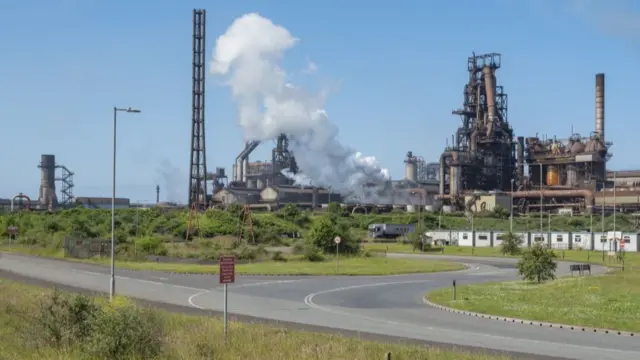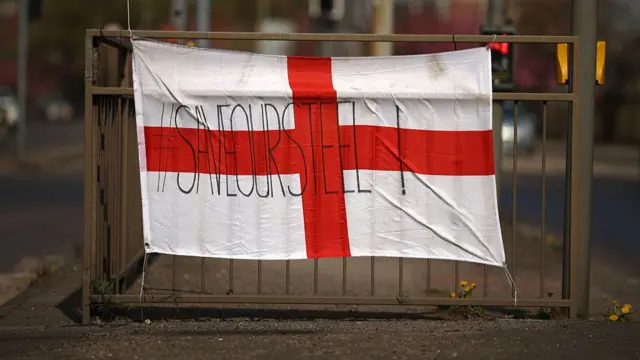British Steel’s furnaces continue to burn with government in charge - but for how long?published at 16:48 BST 14 April
 Adam Goldsmith
Adam Goldsmith
Live reporter
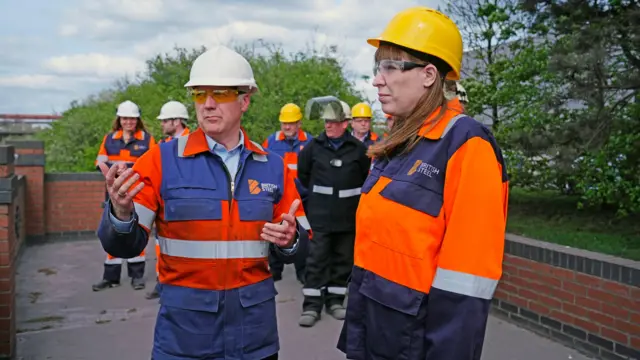 Image source, PA Media
Image source, PA MediaHard hat firmly in place, Deputy Prime Minister Angela Rayner surveyed the government’s latest charge this afternoon, as she told reporters that her team is “confident in the future of British Steel”.
After the government took control of the Scunthorpe plant on the weekend, a race began to ensure that vital materials - including iron ore and coking coal - were readily available.
The urgency came from the 2,700 jobs at risk should the furnaces cool - and end up being shut down for good.
Reassurance arrived a little later on, as union figures - and then government ministers - stressed that the government was "confident" that British Steel could remain in operation.
Shipments of the materials may now be on the way, but long-term questions remain around the future for the country's steel industry.
MPs from Wales and Scotland are asking why similar protectionary measures weren't granted in their regions - while Rayner says she "would like to see" private investment in British Steel in the future.
Meanwhile, Beijing warned the UK against "politicising" negotiations around the plant, which is still owned by Chinese firm Jingye.
That brings our live coverage to an end for today, but there's more across the BBC on this story:
- Our news article has all the latest on the hopes for the site's future
- Plus, there's more on why the furnaces were so close to shutting for good
